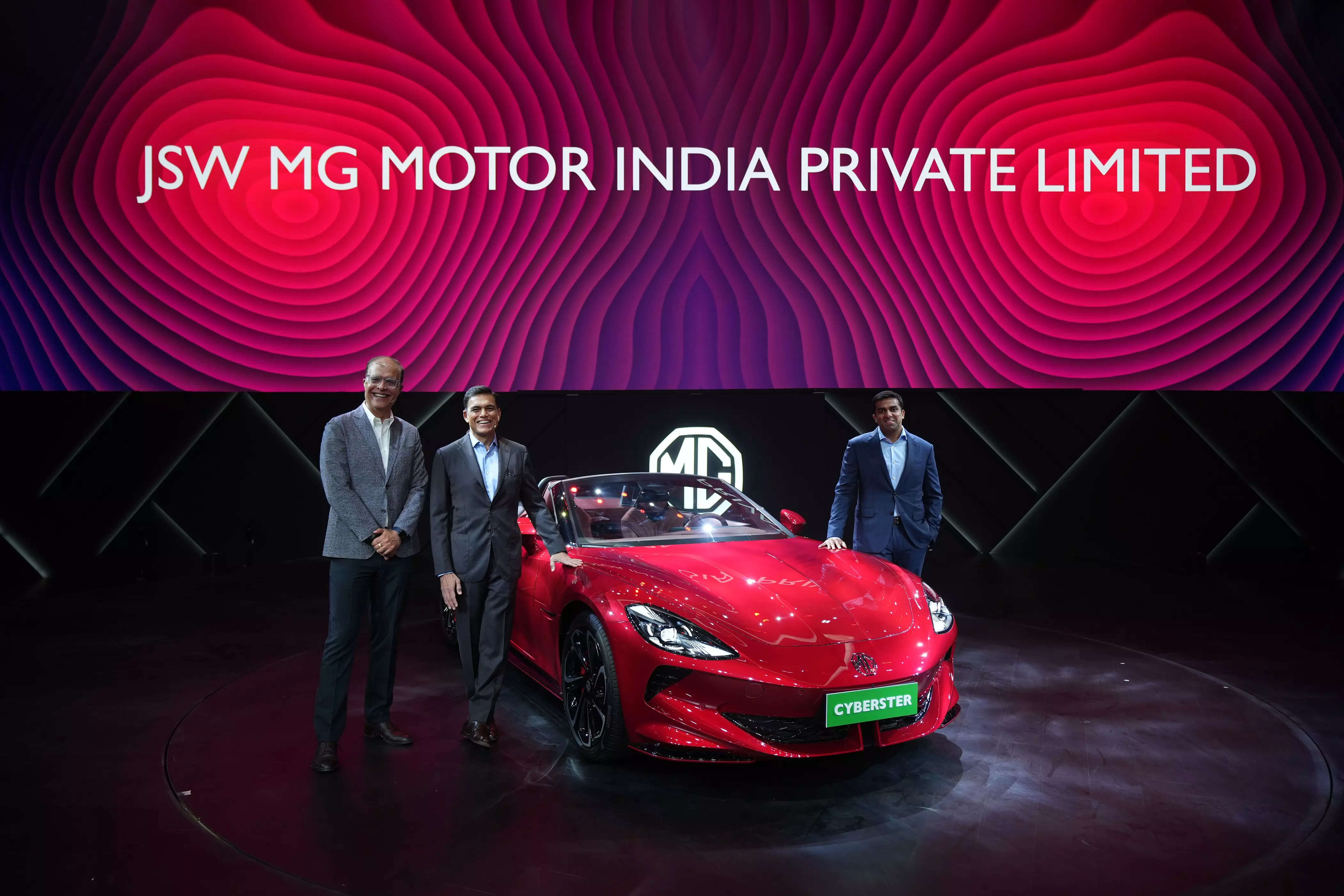
Mumbai: The Indian steel-to-power conglomerate JSW Group has made a foray into the automotive industry through a joint venture (JV) with MG Motor India. JSW has taken a 35% stake in MG. Apart from this, Indian Financial Institution (IFI) is taking 8% in the joint venture, the dealers are buying 3%, and 5% is being kept for the employees.
The JV company has been named ‘JSW MG Motor India’ and aims to take on the Indian passenger vehicle market with its new energy vehicles (NEVs) including electric vehicles (EVs) and plug-in hybrid electric vehicles (PHEVs). Aiming to sell 1 million NEVs by 2030, it wants to be the market leader in the category and take up a 33% share in NEVs by 2030.
“With MG, my dream is that we will create a Maruti Movement. Like 40 years ago, in 1984, when Maruti came into India, it changed the auto industry. It brought in very efficient cars, very lightweight cars, and the Ambassadors and the Fiats went into oblivion. Maruti brought in state-of-the-art new cars and today they are the 50% market leader. I believe that with MG we can create a new energy vehicle Maruti Movement,” Sajjan Jindal, Chairman, JSW Group, said.
MG Motor is an automotive company headquartered in London. Owned by the Shanghai-based Chinese state-owned automaker SAIC Motor, it entered the Indian market with its Hector SUV in 2019. Currently, it sells the Astor, Gloster, Hector 5-seater, Hector Plus and ZS EV SUVs, and the Comet EV in the country.
The JSW development comes amid increased scrutiny by the Indian government on investments made by China amid heightening geopolitical tensions. In November last year, SAIC Motor had inked a JV agreement with the JSW Group. With a majority 51% stake in MG Motor India now owned by Indian entities and 49% by SAIC Motor, the JV is expected to give a new lease of life to the automaker. Going forward, the company could further dilute SAIC’s equity over the next few years and may even consider an IPO.
The Chairman of the new entity will be from the JSW Group. The board of the company will be jointly managed by JSW and SAIC. The steering committee will have representatives from JSW, SAIC, and IFI. In the first phase of development, an investment of about INR 5000 crore is being made by the stakeholders in the new entity for expansion of production and introduction of new cars.
Expansion Plans
JSW MG Motor India is set to launch two products in the market this year, including a ICE vehicle and a NEV. It will introduce its first PHEV in the mass market category next year.
Starting September this year, the joint entity wants to launch one new model in a span of 3-6 months. “We will have models in the premium and the mainstream category. India is premiumising and there is more disposable income. MG also has a slew of products available globally, and we want to bring them also into the country. A combination of the two will allow us to launch a new product every 3-6 months into the Indian market,” Parth Jindal, Member of the Steering Committee of JSW MG Motor India said.
Rajeev Chaba, Chairman Emeritus, MG Motor India said the automaker will have a second plant in Gujarat near its existing unit at Halol. This will take its annual production capacity from over 1 lakh units to over 3 lakh.
In a separate development, in January this year, JSW received approval from the Odisha government to set up EV and component manufacturing plants in the state. The Group has committed a combined investment of INR 40,000 crore to set up the plants.
According to the Group, it is working on the backward integration of NEVs. With a factory in Odisha, it will be able to manufacture localised lithium-ion cells within the next 18-24 months.
“The JSW MG Motor entity will not be investing in Odisha as of now. This investment is going to be made by the JSW Group on a standalone basis. It will include battery manufacturing and cell-to-pack manufacturing for JSW MG products. This will help to localise and bring down the cost of the products to bring them at the right price point, if not lower, at least at the same price as gasoline vehicles,” said Parth Jindal said.
“We are considering commercial vehicles as well at the Odisha plant. We will decide under which brand we want to launch the products whenever those plans will fructify,” he added.

















